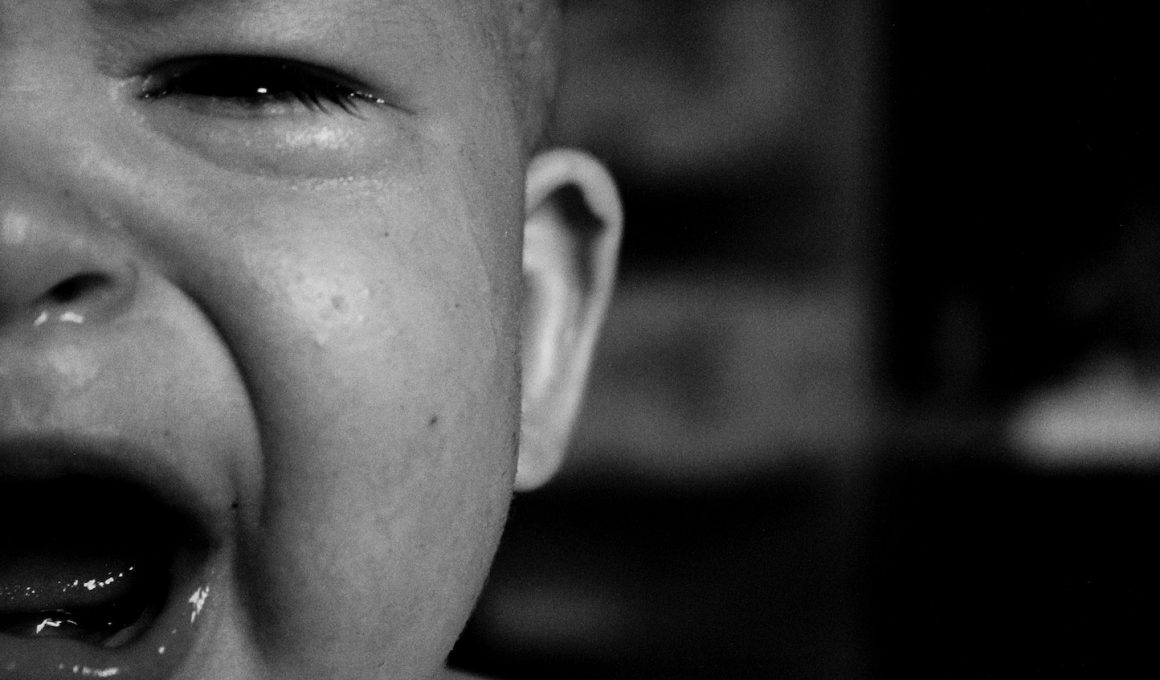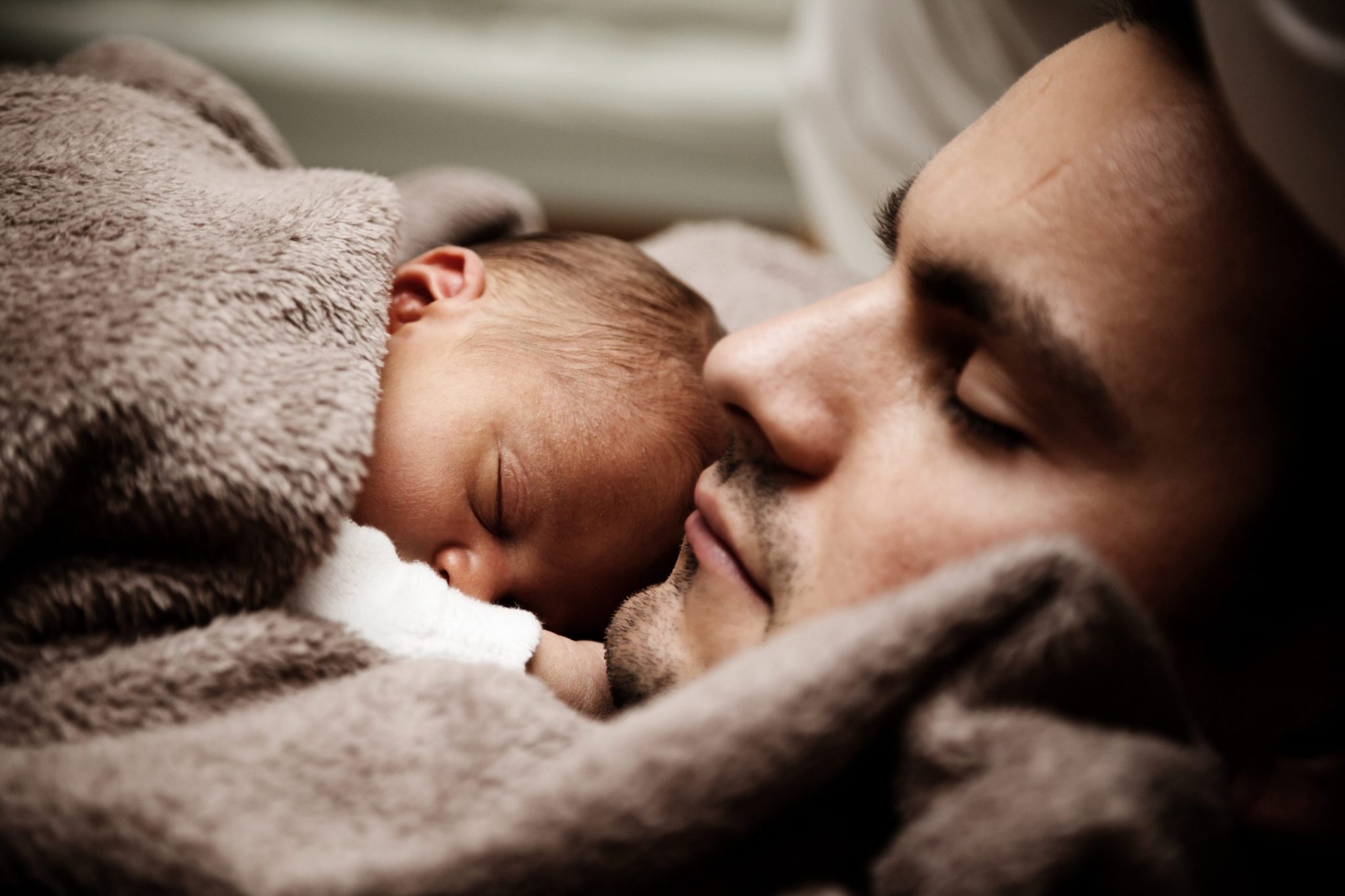It’s the middle of the night, and suddenly you hear your child screaming from the other room.
You leap from bed and run to your child’s room. Your child seems awake but continues screaming. You try to soothe them, but it doesn’t work. It only gets progressively worse.
If this scenario sounds familiar to you, your baby might be experiencing night terrors.
Night terrors, also called sleep terrors, occur during deep sleep, usually in children, where the person suddenly wakes up feeling extremely scared and may scream or show signs of intense fear. They might appear confused or disoriented and often do not remember the episode afterward. Night terrors are generally harmless and occur during the transition from deep sleep to lighter sleep stages.
They usually appear in children between the ages of 3 and 12 years, and about % 30 of children have had at least one. Though uncommon in infants, babies as young as 18 months may experience them.
Watching your baby scream can be unsettling, but the good news is that night terrors are a lot scarier for you than they are for your baby. In fact, your baby will likely have no memory of the episode by morning.
Babies and children grow out of night terrors eventually. But until then, there might be things you can do to help reduce night terrors and to manage them if or when they occur.
What are the common characteristics of night terrors?
A night terror is a sleep disorder in which a person jolts awake from sleep in a terrified state.
They are similar nightmares, except that nightmares usually occur during rapid eye movement (REM) sleep and are most common in the early morning.
Night terrors are harmless and each episode ends in deep sleep.
The following are some common characteristics of night terrors:
- They usually happen in the first half of the night.
- They are most common in preadolescent boys, though they are fairly common in children between 3 to 7 years of age.
- During a night terror episode, your child might be frightened but cannot be awakened or comforted.
- Your child’s eyes might be wide open, but your child will not know you are there.
- Episodes of night terrors might last from 10 to 30 minutes.
- Your child often does not remember the night terror episode in the morning.
Can babies have night terrors?
Yes, babies can have night terrors, too.
However, night terrors are less common among babies, and the prevalence is unknown due to a lack of research on babies.
Night terrors usually happen in kids between 3 and 7 years old, but have been reported in babies as young as 18 months. They can also continue up to the age of 12 years. Night terrors often subside by the age of 10.
Who gets night terrors?
Night terrors have been noted in children who are:
- overtired, ill, or stressed
- taking a new medicine
- sleeping in a new environment or away from home
- not getting enough sleep
- having too much caffeine
A child might have a single night terror episode or several before they stop. Usually, night terrors disappear on their own as the nervous system matures.
What are the signs of a night terror?
During a night terror, a baby might:
- Sit up in bed and seem very afraid but not awake.
- Be unable to respond.
- Scream, cry, shout, or flail.
- Be difficult or impossible to awaken.
- Walk or crawl aimlessly.
Night terrors can be brief, but some may last up to 30 minutes. Afterward, your child may return to sleeping peacefully.
If a baby seems afraid after fully waking up, the issue might be something else, such as something scary in the room or a nightmare memory.
What causes night terrors?
Certain causes of night terrors are not known yet, and up to now, no research has found a link between night terrors and brain chemistry or structural differences.
It is not the exact cause, but night terrors are usually linked to a baby’s daily life.
The daily life of a baby is full of stimulation. Since your baby’s central nervous system (CNS) is still developing, all of that stimulation can cause the CNS to become too stimulated. According to experts, this overstimulation may contribute to night terrors.
Your baby might also be more susceptible to night terrors if night terrors run in your family. A family history of sleepwalking may also increase the risk of night terrors.
Other factors that might increase the risk of your baby having a night terror include:
- Stress
- New sleep surroundings
- Poor sleep quality
- Sickness
- Taking certain medications
- Being overtired
What to do when you witness a night terror?
Night terrors can be very upsetting for parents, who might feel helpless when they can’t comfort their child.
Below are some things to note during a night terror:
- The best way to handle a night terror is to wait for it to end patiently and make sure your child doesn’t get hurt if they are thrashing around.
- Children usually settle down and return to sleep on their own in a few minutes.
- Experts do not recommend trying to wake up a child during a night terror. This usually doesn’t work, and children who wake up are likely to be disoriented and confused and may take longer to settle down and go back to sleep.
How can I help my child during night terrors?
There is no treatment for night terrors, but you can help your child in a few ways. These include:
- Do not try to awaken your child.
- Make soothing comments.
- Hold your child if it seems to help them feel better. Shaking or shouting at your child may cause the child to become more upset.
- Protect your child against injury. During a night terror, a child can fall down a stairway, run into a wall, or break a window. Try to direct your child back to bed gently.
- Prepare babysitters for these episodes. You should explain a night terror and what to do if one happens.
- Try to prevent night terrors. A night terror can be triggered if your child becomes overtired. Ensure your child goes to bed at a regular time and gets enough sleep. Younger children may need to return to a daily nap.
Can I prevent my child from having night terrors?
Until now, no strategy has been scientifically proven to prevent night terrors.
Some people find that keeping a log of their baby’s night terrors helps them identify triggers, like stress factors, fatigue, or certain foods.
Additionally, there are some easy ways you can help your baby:
- Make sure your child gets enough rest.
- Establish a consistent, soothing and simple nighttime routine.
- Put your baby to bed at the same time each night to prevent exhaustion.
- Avoid giving the baby anything that has caffeine in it.
- Reduce your baby’s stress levels.
- Modify your baby’s diet to see whether any foods are triggers.
- Address sources of stress within the family.
- Prevent your child from becoming overtired.
- Don’t let your child stay up too late.
Sharing a room with your baby may also help, though sharing a bed is not a good idea.
The American Academy of Pediatrics recommends that parents and babies share a room, but not a bed, for at least the first 6 months of life, and preferably the first year.
If your child has a night terror around the same time every night, you can try waking them up about 15–30 minutes before. In some cases, this can help prevent it.
Understanding night terrors can ease your worries and help you get a good night’s sleep yourself. But if night terrors occur repeatedly, talk to your doctor about whether a referral to a sleep specialist is needed.
When to seek help
Night terrors might be scary, but they are not a sign of a health problem.
They are part of a group of sleep disturbances called parasomnias and include sleepwalking (somnambulism), sleep talking (somniloquy), and waking up in a confused state. Parasomnias occur in about half of all children.
Usually night terrors go away on their own. But it might help ease your anxiety to talk to your child’s doctor.
Let them know if your child’s night terrors keep them up often or for over half an hour.
They might be able to rule out other health conditions that can cause night terrors.
And consult your child’s doctor if you notice any of the following:
- The child has drooling, jerking, or stiffening.
- Terrors interrupt sleep on a regular basis.
- Terrors last longer than 30 minutes.
- Your child does something dangerous during an episode.
- Your child has daytime fears.
- You feel like family stress may be a factor.
- You have other questions or concerns about your child’s night terrors.
In many cases, no examination or testing is needed. If the night terror is severe or prolonged, your child may need a psychological evaluation.
References: healthline.com, kidshealth.org, chop.edu, medicalnewstoday.com, mayoclinic.org, hopkinsmedicine.org










